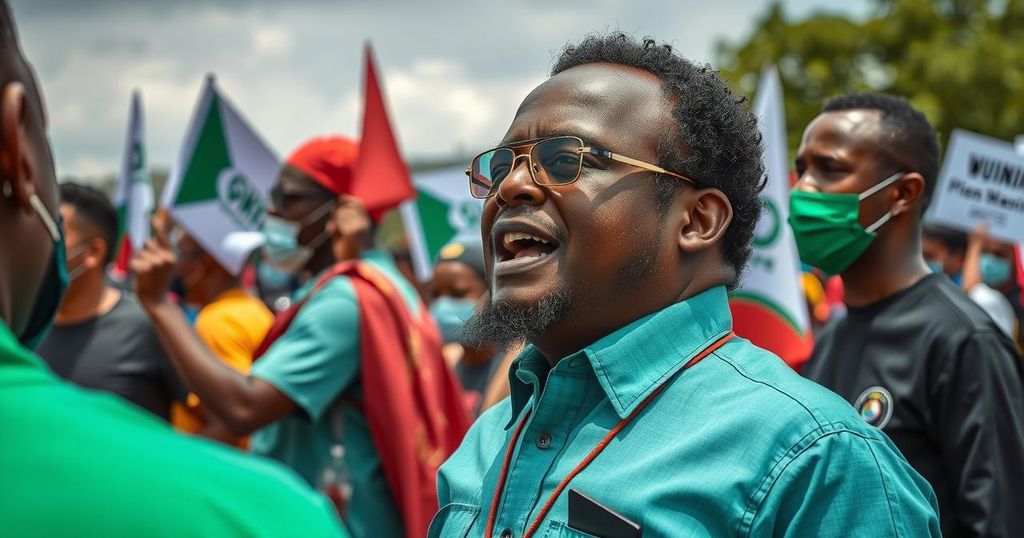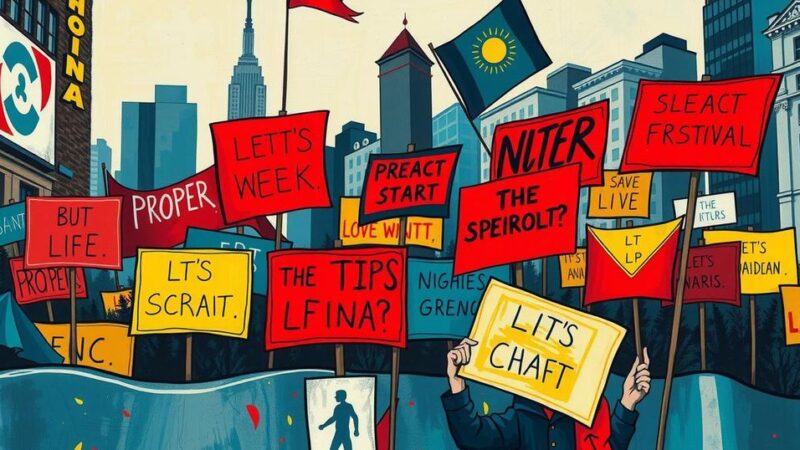In Comoros, opposition leader Daoud Abdallah Mohamed has rejected the election results, citing significant fraud and a lack of transparency. The ruling CRC party claimed victory amid accusations of ballot box stuffing, while the United Opposition largely boycotted the polls. President Azali Assoumani dismissed these allegations, and the United Opposition stated it will not participate in the February 16 runoff election.
In Comoros, the leader of the United Opposition coalition, Daoud Abdallah Mohamed, has emphatically rejected the results of the recent legislative elections held on February 4th. He cited significant electoral fraud, including allegations of ballot box stuffing and discrepancies involving the number of votes exceeding registered voters. The opposition largely boycotted the polls, asserting that the election process lacked transparency. Despite these claims, the independent electoral commission announced that candidates from the ruling Convention for the Renewal of the Comoros (CRC) secured a substantial majority, with a declared voter turnout of 70%.
Accusations regarding electoral malpractice proliferated, as observers noted irregularities particularly in the regions strongly supporting President Azali Assoumani. The election’s integrity was further called into question by the absence of opposition candidates in many districts. President Assoumani, in power since 2016, dismissed the allegations of fraud and stated that it was the opposition’s responsibility to substantiate their claims. The United Opposition has already stated it will not participate in the upcoming second round of voting, scheduled for February 16.
The political landscape in Comoros is characterized by tension between the ruling party and opposition groups. After a series of controversial elections, including this most recent legislative poll, accusations of electoral fraud and lack of transparency have become commonplace. The United Opposition coalition, formed by various opposition leaders, has consistently boycotted elections, citing unfair practices and manipulation of the electoral process. This trend reflects a broader struggle for power and legitimacy within the nation, as the ruling party seeks to maintain its authority amidst rising dissent.
In conclusion, the recent legislative elections in Comoros have ignited further political turmoil as opposition leaders reject the results due to claims of electoral fraud. The refusal of the United Opposition to participate in the forthcoming second round hints at an escalating conflict between the government and opposition factions. As allegations of electoral misconduct persist, the stability of Comorian democracy remains in question, necessitating a review of electoral practices to restore public confidence.
Original Source: www.barrons.com






